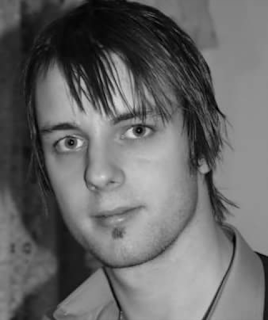Silent Little Mockingbirds
Today our guest is Paul Greatrix from Staffordshire, England. He is a budding author who is a keen horror enthusiast. His flagship novel, Silent Little Mockingbirds, is in its final stages of editing. It is a 'post-war fairytale nightmare' that draws great influence from the film, Night of the Hunter. We have conducted an interview with Paul.
What is "Silent Little Mockingbirds" about?
It’s a grim tale set in the years following WW2, and centres around European war orphans that have been rescued from poverty and brought to an abandoned Estonian island. There, hidden from the rest of the world, is an orphanage called the Farm; an old, sprawling mansion redesigned to resemble a child’s funhouse. The majority of orphans brought there are children pertaining to the allied countries – Polish, French, Russian. But one amongst them is very different. With his striking blue eyes and white-blond hair, there is no hiding Aldo’s heritage as a Nazi Aryan. The children of the Farm find the orphanage to be a dreamy wonderland of delight, a tiny bubble of wonder, and laughter, and hokum in a world gone grey and ruinous. Only Aldo thinks differently. For he is not just any Aryan, he is Hitler Youth and a first amongst peers. Bred and conditioned for a war he was too late to join, his mind has been fine-tuned into an objective and practically thinking machine. He understands more than the average child, sees more, suspects more.
Especially when it comes to the Farm. Because nightmares sometimes have a cunning way of dressing themselves as dreams.
How has being a keen horror enthusiast influence you as a writer?
The thing I’ve always loved about the horror genre is how parasitic it is. It has the cunning ability to adjoining itself to other genres and mutating them into ghastly parodies of themselves. The best analogy I can think of is to say the horror genre is like vodka. Vodka can be readily mixed with almost any other drink – cola, lemonade, orange juice, apple juice. Add the vodka, and although those drinks remain recognisable to the taste buds, they have somehow been turned into something all the more fiendish. That’s what I love about horror, and why I write it. Ill-fortune and terror pervades every walk of life, spans all ages, and is as ubiquitous and naturally occurring as rainfall. It allows me as a writer to hopscotch into any setting I like and disrupt any convention. It’s a very demented and fun horse to ride.
Who inspired you on the characters about the post-war?
The setting came as a result of the characters. I always wanted to write a horror story with children as the protagonists. As children, I think fear is very rich, very basic. As adults, we learn to fear increased interest rates, mysterious lumps beneath our skin, hazardous business endeavours. But as children we fear the shadow puppets trees and moonlight make on our bedrooms walls at night, the closet door standing ajar, the strange figures we glimpse sidelong down alleyways. Those are base terrors stripped of society’s influence. Nightmares we instinctively know to fear.
Besides that, I’ve always been a great lover of antiheroes. That comes from reading lots of David Gemmell as a teenager. The idea of having a misguided Nazi boy as my hero came to me very early on, and the setting grew out of him.
There is a powerful sense of fairytale-nightmare running through the story. Where did that come from?
I grew up reading tons of fantasy novels, and although my genre of choice has shifted, my writing is still heavily influenced by those conventions, I think. Being set in a distant era – post-War Europe – Silent Little Mockingbirds shares the same sense of dislocation we find in fantasy novels. The reader is given the opportunity to explore a world unlike their own, meet societies they’re perhaps unfamiliar with. There can also be found a subversive sense of quest. But most of all, I think the fairytale-nightmare ambience comes from the fact that the view-point characters are children. When things go well for them, they see only sugar and spice and all things nice and are tragically blinded to the true teeth of the world. It’s when those teeth find them that the fairytale turns cancerous and fatal. It becomes a true nightmare.
How does reading horror stories relax you?
I’m not sure reading horror is ever relaxing! It’s just not that sort of gig. Reading horror is probably the literary equivalent to bungee-jumping in your spare time rather than playing golf. We read horror to stare into the abyss, while still being safely tethered to reality. The written page is the abyss, and our reading chair the bungee cord stopping us from falling all the way in. We like to flirt with darkness. Knock on the door and run away as fast as we can, heart hammering in our chest, even long after we’ve escaped.
Follow Paul on:
Facebook: https://www.facebook.com/Paul-Greatrix-Author-1472533766380570
Twitter: https://twitter.com/PJGreatrix



